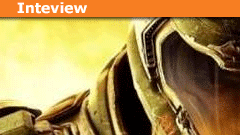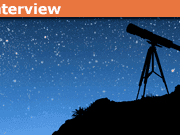Interview with a Mentor: Drakkith
Give us an early bio on yourself
Well, I was born and raised near Dallas, Texas as the only boy of 4 children. I grew up with 3 sisters, though I had another sister, 3 stepsisters, and a stepbrother that I did not live with. I’m only 10 minutes younger than my twin sister and I like to tell her that I might as well be the oldest. Being the only boy, I’m also my sisters’ most favorite and best brother of all time, which is obviously always true! Of course, so is the opposite…
I spent the first 9 years of school living in a town of barely 700 people. By coincidence, my class, with about 20 people all the way from kindergarten to 9th grade, was the largest in the entire school. My school was so small it taught K-12 all in a single large building. I think the graduating class the last year I attended barely had a dozen people! Being such a small school, we played six-man football instead of 11-man (American football, not that strange game we call “soccer”). I remember one year where we had a Canadian school come all the way down and play us!
About halfway through my 9th grade, we moved to a MUCH larger town and I ended up going from a class of 20 to a class of 800. That was a small bit of culture shock, let me tell you! While in high school I joined the Army JROTC program and spent three years on their Orienteering (land navigation) team. The team formed during my first year and by the third year I was captain of the team. I believe we won third place in our category at the national championship that year!
After graduation high school, I spent about a month playing video games and doing all the regular teen stuff before heading off to Air Force basic training, where I ended up server 10 years before separating to go to school full time.
How did you get interested in science and how is it important to your life?
I think I’ve always been interested in science to some degree. I remember that when I was young we had an encyclopedia set that I would pour over, especially the parts on science. My father gave me a telescope for Christmas one year, but unfortunately it was very cheap, hard to use, and broke shortly after I received it. It took another twenty years, but I eventually got another telescope and learned how to properly use it. Word of advice, folks: don’t buy your kid a telescope you bought for fifty-bucks at Wal-Mart. Spend some time researching what to buy, how to use a telescope, etc.
Science is very important to me. It has greatly helped me understand how the world works and the critical thinking skills I developed while learning about science continue to serve me well in today’s world. It is so incredibly easy to get bombarded with pseudo-science and misinformation that I don’t want to imagine where I’d be had I not gotten into science!
You have a degree in Electronics Systems Technology. Tell us a little bit about this field and why it interested you.
Oh that degree is nothing special. My job in the Air Force involved maintaining cruise missiles and ICBM’s (though I never did the latter, it was still part of the career field and we had to learn all about them). The electronics training I received could be applied towards a degree from the Community College of the Air Force, an accredited college run by the Air Force which offers various associate degrees for every career field in the service. Mine just happened to be in Electronics Systems Technology. When I looked into getting my degree, it turned out that I only needed to take 5 college classes, with the rest of the credits taken up by my Air Force training. So I took one class a semester and two CLEP tests and a year later I had my degree!
You are now studying for a degree in Optical Engineering. What is this about and why the switch?
You can find a nice definition on Wikipedia, but I like to say that Optical Engineering is all about generating, manipulating, and detecting light. This includes things like lens design, infrared cameras and sensors, fiber-optic communication, basic research and development, and much more.
I ended up choosing Optical Engineering, mostly thanks to my interest in amateur astronomy that developed several years before I separated from the Air Force. I remember buying a book on telescope optics and thinking about how interesting all the ray and spot diagrams for the different telescopes and eyepieces were. I greatly enjoyed learning about all the different types of aberrations, the different telescopes and what each design was good for, and the basics of how lenses and mirrors are made.
Prior to separating from active duty, I ended up being convinced by a co-worker to join the Air Force Reserves. However, my career field at the time did not have a reserve component, so I was forced to cross-train into another career field. During this process you have to choose a base from their list to be assigned to. Well, one of the choices was Davis-Monthan AFB in Tucson, Arizona. Now, from my interest in astronomy, I knew that Tucson was essentially the astronomy capital of the U.S, with multiple major observatories on the nearby mountains and with several high-profile missions being developed there. I then found out that the University of Arizona in Tucson offered a degree in Optical Sciences and Engineering and decided to go for it.
Tell us a few of the challenges you’ve faced while at school and the things you’ve learned in the process.
I’ve encountered a great deal of challenges in school thanks to several diagnosed and undiagnosed disorders. These challenges, and my attempts to overcome them, have taught me a great deal about myself and other students. It can be incredibly difficult to continue on in school if you’re doing poorly, and the all too common recommendation of “just keep working at it” often fails to help many students.
I think the most important thing I’ve learned is that if you are having trouble in school, you need to identify where you’re having trouble and WHY you’re having trouble. For example, after doing poorly at the university my first semester, I attended a local community college for the next two years prior to transferring back. While at the community college, I figured out that I CANNOT do homework at home and that if I wanted to get anything done I needed to stay at the library on campus. There are just too many distractions at home and the environment isn’t good for me to try to study and do homework. I find that a significant number of students that I talk to have this exact problem. They just don’t realize it. Oh, I’m sure that if you asked them if they have problems studying at home, they may answer yes, but many haven’t sat down and really thought about it. They haven’t taken the time to look at themselves and actively work at identifying their weaknesses.
I don’t care who you are. You need to do this. Developing the ability to look at yourself, identify your weaknesses, and then actively work to improve yourself is a skill that will benefit you for the rest of your life in my opinion.
You’re an Air Force veteran (Thank you for your service!). Tell us a bit about why you decided to serve and why the Air Force?
I wish I had an interesting story to tell, but I basically had nothing else to do. I had no idea what I wanted to do once I graduated high school, I had no means to pay for college except take out loans, and I had always been more interested in the Air Force than the other services. I’m sure being in JROTC for 3 years influenced my decision to join.
What was your job while in the Air Force?
I believe my career field as a whole was originally called ICBM Electronic Maintenance, but it appears it was changed to Missile and Space Systems Electronic Maintenance sometime recently. We basically had two segments of our career field. The first involved maintaining ICBMs and the closely related space launch systems. This includes the maintenance on the missiles themselves, the supporting equipment in the launch facilities and silos, and also included working on space launch vehicles derived from ICBMs. The Atlas and Delta series of launch vehicles are the first ones that come to mind.
The other segment, and the one I was a part of, was Air Launched Cruise Missile maintenance. We maintained the AGM-86 B/C/D ALCM series of missiles and the AGM-120 ACM. These were nuclear and conventional cruise missiles launched from the B-52 Stratofortress bomber. The B-52 would fly to around 1,000-2,000 miles from the target and drop the missile, which would then fly itself the rest of the way.
I performed several jobs while I was on active duty. My first job was as a team member on a maintenance team. We performed preventative maintenance on the missiles, tested them, replaced failed components, performed fueling and defueling operations, and other necessary things needed to maintain a fleet of cruise missiles (that’s right, apparently a group of cruise missiles is called a fleet, not a flock).
I also worked in several back shops. The “Analysis” section was responsible for maintaining maintenance records, creating work orders for the maintenance teams, and compiling data about the status of the missile fleet for our commanders.
After another stint on a maintenance team, running the team as a team chief this time, I moved to the Munitions Control section. We tracked all of the operations going on in the munitions storage area of the base, coordinated the buildup and delivery of munitions to the bombers on the flight line (the area where the runways, taxiways, aprons, etc are), and acted as a voice for the “Chief”. That last part means that we answered directly to our Chief Master Sergeant, the highest enlisted rank (non-officer) in the squadron. If he says jump, you jump. If he says he wants all of the different maintenance shops in the squadron to jump, you get on the phone and the radio and have them jump.
What were some life lessons learned or insights while serving?
While I’m sure there are many insights and lessons, the one that stands out the most is a lesson of how not to act. When I was a team chief running a maintenance team, we had a cabinet with a half-dozen drawers that stored dust caps and shield caps. These were plastic and metal caps that we would put on the ends of electrical connectors and air hoses while there were disconnected to protect them from dust, dirt, and other things that might corrode or damage them. Each particular cap was stored in its own bin and they were not supposed to be mixed together.
This cabinet was originally in what we called the “Engine Bay”. This was a section of the building dedicated to major maintenance on the missiles, the most common of which was removing the engine from the missile and replacing it with a refurbished one. The engine bay was the natural place to store the cabinet since the majority of the dust and shield caps were needed for the maintenance in that particular bay. The maintenance we performed in other bays wasn’t as extensive and didn’t require as many caps.
As I said, each cap was supposed to be in its own bin and not mixed together with other caps. The problem was that people would just toss these caps back into the drawers and get them mixed together, causing us to continually get dinged by our QA. One day our supervision got tired of getting these infractions and decided to take the cabinet and move it from the engine bay to the other side of the building in another maintenance bay. Apparently their thinking was that if we couldn’t take care of it, they’d take it away from us. Or something like that. The problem is that those caps were required for maintenance, so you just can’t take them away as if they were a child’s toy. The net effect was that we now had to walk all the way across the building, through two other maintenance and handling bays, just to get a simple dust cap
And, predictably, that still didn’t fix the problem. So they moved it again.
This time they moved it into the “support” back shop, where all the support equipment, chemicals, paints, and other consumables were kept. The problem was that the support section wasn’t responsible for taking care of this cabinet and it just made us walk even further to get a dust cap.
And it still didn’t fix the problem.
The lesson I learned from this was to actually think about your solution to a problem and check and see if it’s working. If it isn’t, don’t keep doing it!! The proper way to fix the problem, at least in my opinion, was for supervision to discipline the bay chiefs every time QA dinged us for that cabinet and have them enforce a daily inspection of the cabinet if necessary. Removing the cabinet from the place where it was needed the most was the very opposite of a valid solution. Not only did it fail to fix the problem, it made it worse and created new problems by slowing down maintenance.
So, remember to think about your solutions to problems and to check and see if they are working or not. If your solution isn’t working, do something else.
You’ve been a PF member for over 7 years now. What has that time at PF and the PF community as a whole meant to you?
It means a great deal to me. PF is where I first learned about the very basics of science and it made me realize how ignorant I was. Not only about science, but about many different things in life.
Is there a recent development in science/tech that excites you?
Certainly. Just about anything to do with astronomy for one. The JWST is amazing and should make some important discoveries after it’s launched. I also remember reading about a new camera sensor being developed that allows for the reading of the charge level in each pixel without having to shuffle all the electrons to a readout array. This would allow for real-time image development without needing to close the shutter, read out the entire sensor array one column of pixels at a time, and then reset the entire sensor for the next image. For someone who’s into astrophotography, this potentially means easier tracking and guiding of the telescope and would be a welcome upgrade to my current equipment.
What are some of your favorite movies, books and musicians?
My favorite books of fiction are mostly sci-fi or fantasy, with the Harry Potter series being near the top along with the Ender’s Game series. I’m also a fan of Warhammer 40K fiction. For non-fiction, or perhaps less-fiction, I recently read “The Civil War” trilogy by Shelby Foote, and I highly recommend it to anyone who’s interested in the American Civil War. It’s an amazing piece of work detailing nearly every major and minor engagement, along with snippets from the political and personal lives of dozens of politicians and leaders, in a unique narrative style that works fantastically.
When it comes to movies, I’ve enjoyed the latest Star Wars movies, Letters From Iwo Jima, Moana (which my niece and nephew made me watch at least 15 times this past summer), and many others. I’ve also recently started watching documentaries about naval warfare in the 1st and 2nd world wars.
Give us a snapshot of Drakkith in 20 years. What are your goals, where do you want to be and doing what?
20 years? Hopefully I’ll be a successful engineer! That’s my current goal after all.




Not at the moment, no.You can work on that after you get *the* job and let your employer handle the expenses. I know you can do it. :smile:
Do you have any plans for graduate school?Not at the moment, no.
Thanks for sharing some of your history. I can relate to several of your experiences. e.g. "Living" at the University studying and doing homework.
I hope you will still be active here after you get your Optical Engineering degree. Do you have any plans for graduate school?
..” My school was so small…”( How small was it?) I was expecting the punchline to joke… . Still, cool story and good job their at the AF and here at PF!
I never thought much about Warhammer books. Maybe I'll have to give them a try. Which to try first?Anything by Dan Abnett. Try the Eisenhorn trilogy, it's fantastic!
I never thought much about Warhammer books. Maybe I'll have to give them a try. Which to try first?
Nice write up! Sounds like youve had some great experiences. Thank you for your service.